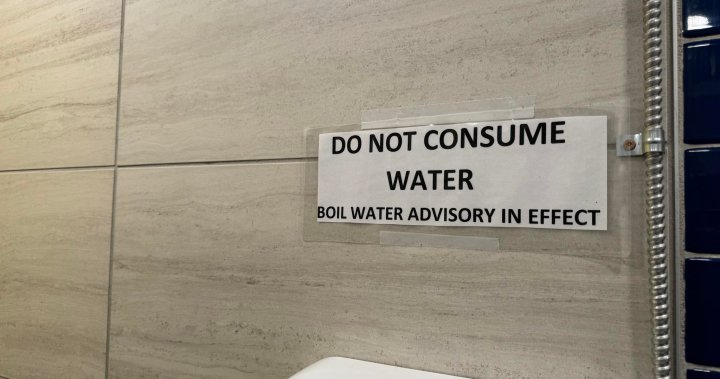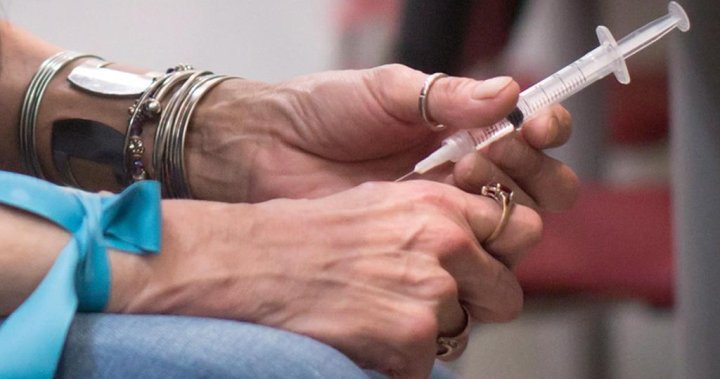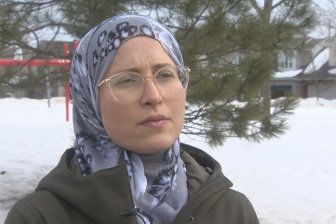Federal Conservative Leader Pierre Poilievre did not mince his words Wednesday when asked about the ongoing drug crisis in B.C. and how the federal and provincial governments are handling the issue.
“The results are in. The debate is over,” Poilievre said.
“It has been a disaster. An absolute abject failure.
“You need to not only take a walk down the streets of East Vancouver where addicts lay face-first on the pavement, where people are living permanently in tents and encampments but you just need to look at the data.”
He said there has been a 300 per cent increase in drug overdose deaths in the province since Justin Trudeau was elected prime minister in 2015.
According to the B.C. Coroners Service, there were 529 deaths from illicit drugs in 2015. That number rose to 2,272 in 2022.
Read more:
2,300 British Columbians died from toxic drug supply in 2022
Read next:
Candice Bergen announces resignation: ‘Not really one for long goodbyes’
“The Trudeau-NDP approach is on open display in Vancouver. It is a complete disaster — it is hell on earth,” Poilievre said.
British Columbia’s pilot project to decriminalize possession of small quantities of some drugs started on a three-year experiment Tuesday, built on a three-year federal exemption from the Controlled Drugs and Substances Act.
That exemption will allow drug users to carry up to 2.5 grams of opioids like heroin or fentanyl, crack and powdered cocaine, or methamphetamines and MDMA. Under the program, police will not confiscate small quantities of drugs from people, and will instead hand out information on recovery options.
Poilievre said if elected, his government would reverse the decriminalization policy and replace it with recovery and treatment.

He pointed to what has happened in Alberta and said the number of treatment beds rose from 4,000 to 8,000 and the number of people dying from drug overdoses dropped by half.
In 2019, the Alberta government announced a four-year commitment to fund 4,000 addiction treatment spaces — a number it says it doubled by the end of 2021.
“Every year, over 8,000 more Albertans are going to have access to fully funded medical detox residential treatment and residential recovery services that were not available before,” Premier Jason Kenney said at the time.
According to the Alberta COVID-19 Opioid Response Surveillance Report, 603 people died from unintentional opioid poisoning in 2019. That number rose to 1,351 in 2020 and then 1,817 in 2021.
However, that number dropped to 1,443 in 2022.
Colin Aitchison, press secretary for Alberta Minister of Mental Health and Addictions Nicholas Milliken, said last week that the province is “cautiously optimistic about the continued downward trend since the peak in late 2021.
“Additionally, hospitalizations and emergency department visits related to opioid addiction are at their lowest point since the start of the pandemic, and have decreased 39 per cent and 40 per cent respectively since peaking in late 2021,” Aitchison added.

Poilievre said the plan in B.C. needs to change.
“We need to save our brothers, our sisters, our neighbours, our friends from the scourge of drug addiction and a Poilievre government will make sure there’s treatment to do that.”
B.C.’s Premier David Eby was quick to respond to Poilievre, saying that in B.C. managing the drug issue is a “health-care crisis, not a policing one” and that decriminalization will allow for the destigmatization of drug use and help prevents deaths in the future.
© 2023 Global News, a division of Corus Entertainment Inc.










More Stories
Saskatchewan isn’t remitting the carbon tax on home heating. Why isn’t my province following suit?
Here’s why provinces aren’t following Saskatchewan’s lead on the carbon tax home heating fight
Court ruling affirms law curbing parliamentary immunity of spy watchdog members